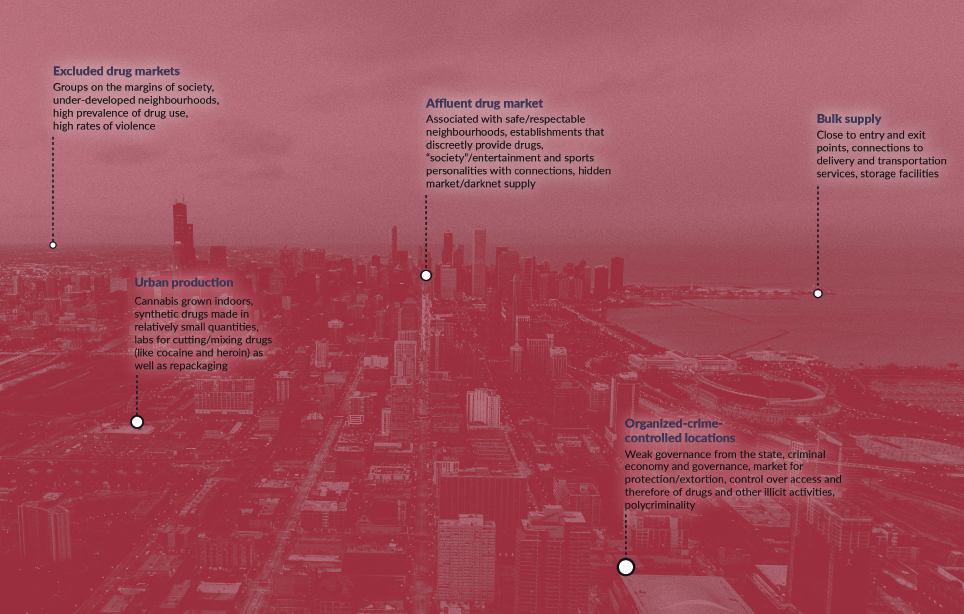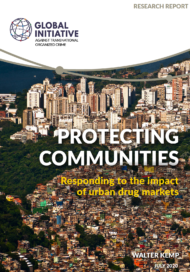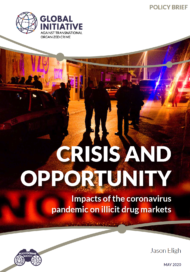Event Details
Posted on 09 Jul 2020
This paper looks at the challenge posed by urban drug markets, particularly the impact on crime, safety, and development. It combines a granular local analysis – based on research as well as interviews with current and former gang members, police, drug users, social workers, court employees and representatives of civil society – with a broader transnational perspective.
The study focuses in particular on drug markets in the cities of Cali, Colombia; Chicago, US; Cape Town, South Africa; Karachi, Pakistan; Kingston, Jamaica, and Rio de Janeiro, Brazil.
 Figure 3: The urban architecture of drug markets. (Page 20)
Figure 3: The urban architecture of drug markets. (Page 20)The paper first identifies the problems, types and impact of urban drug markets, and then examines what can be done about them. It looks at what can and is being done at the community level to strengthen local resilience to drugs within a broader context of improving urban management to make cities safe, resilient and sustainable (in line with UN Sustainable Development Goal 11 on sustainable cities and communities). The topic of protecting communities takes on added relevance as calls to defund the police open important debates about the limitations of militarized policing and create new opportunities beyond law enforcement to build safer communities.
But local efforts will be insufficient if there are not broader interventions to address the market forces that fuel drugs and crime. Therefore, this report puts analysis of local hotspots into a wider perspective of how urban drug markets are part of global supply chains.
In short, this study looks at the impact of urban drug markets: why they develop in some cities; how they manifest themselves; how they shape and are shaped by their environment; and what can be done to disrupt them and help nurture resilience in these communities.




